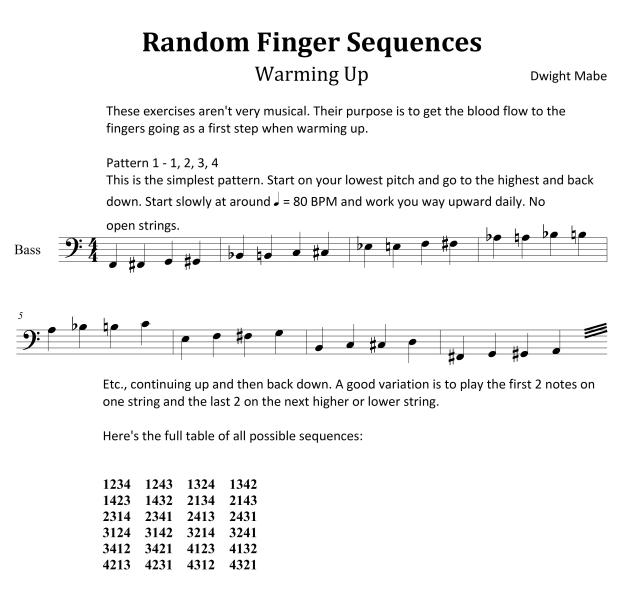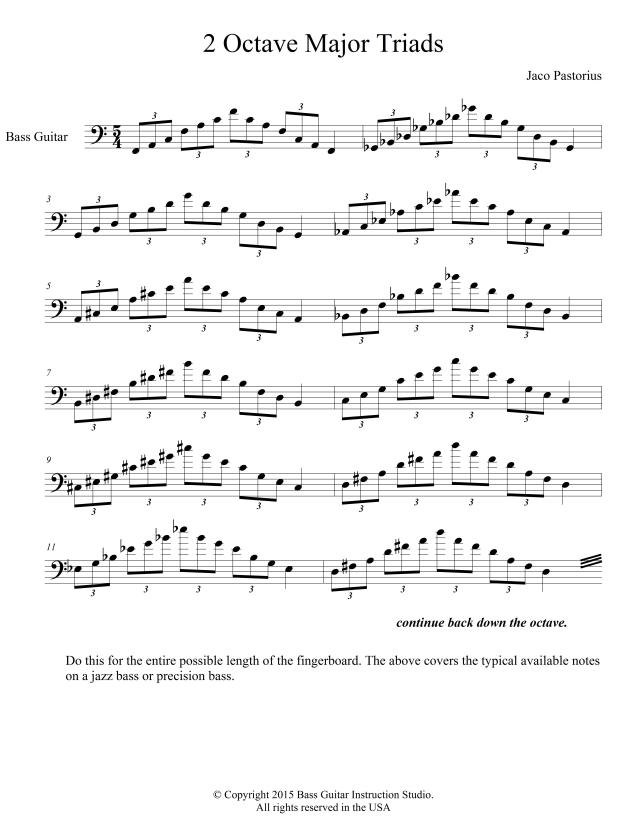I went for a number years with little or no warm-up before practicing or playing a gig. It never seemed really necessary. Playing a lot of gigs for over a decade was a big help in keeping me thinking that way and I learned a lot from a bass teacher who was familiar with physiology.
But as the years went by, some pain began to creep in from time to time. It usually passed quickly but became a bit more frequent. This made me realize that I had to get back to warming-up or risk not being able to play as well or as often.
Serious as that sounds, the reasons for warming up are very simple. The movements in playing bass guitar are relatively small and with a well setup instrument, they shouldn’t painful.
In my case, I’ve come to the realization that it boils down to circulation. Keep this factor in mind – for the hands to function well when playing, there needs to be adequate blood flow.
Warm-ups are the best solution. But what, how and for what length of time are important. Here are some criteria:
- How much time do you spend practicing each day? At least ten percent should probably devoted to a warm-up.
- How often do you play live? I used to play well over a 100 gigs a year. During that time, relatively little time was needed for warming up. As that live playing time has decreased a lot, more warm-up is needed.
- What kind of/genre of music are you playing?
- What are your short and long term goals?
If you spend only an hour or so a day practicing, getting the most from that time is important. My warm-up consists of some dexterity exercises, some strength exercises, lots of arpeggio work, linear playing such as scales and then onto what I’m currently working on. The warm-up can take as long as 30 minutes. A major focus is beginning slowly and working to faster levels. A cool-down (here’s a great link by Donovan Stokes of NoTreble.com ) can also be helpful..
The first exercise slow dexterity. It isn’t terribly musical but it does help the blood flow get going to the hands and fingers and gets the small muscles and tendons going.
Click here to download a pdf version.
This a good, simple beginning to a warm-up. Work with it for a while and you will begin see a difference.
Finger strength is important. Trills are a good method for this. This article from NoTreble.com has a pretty good method for working on this. Spend a few minutes on this everyday.
The next part of a warm-up should probably arpeggios. I usually take arpeggios from triads to ninths. One of the best triad exercises is Jaco Pastorius’ 2 octave major triads from Modern Electric Bass (the link takes you directly to the beginning of this exercise in the video). This exercise is also about learning the fingerboard and covering it’s entire length. It is done by shifting on almost every note – not the most efficient method for getting around triads but it’s real purpose is knowing where every note is located. This is a quick transcription of the exercise.
Click here to download a pdf.
The next thing I recommend is basic scales and arpeggios. These should reflect the music you’re currently working on. I’ll post something later on a number of methods for scale and arpeggio warm-ups as well several practice regimens for them.
Please let me know what you think here in the comments section.



Dwight, thanks for this. One minor error — in the 3rd line, right at the end, should be 2431, not 1431.
LikeLiked by 1 person
Thanks for the comment. I fixed the error you mentioned and another one that I missed.
LikeLike
Reblogged this on •a cultural creative • and commented:
Being a bass player, I was down with this blog from the first post.
LikeLike